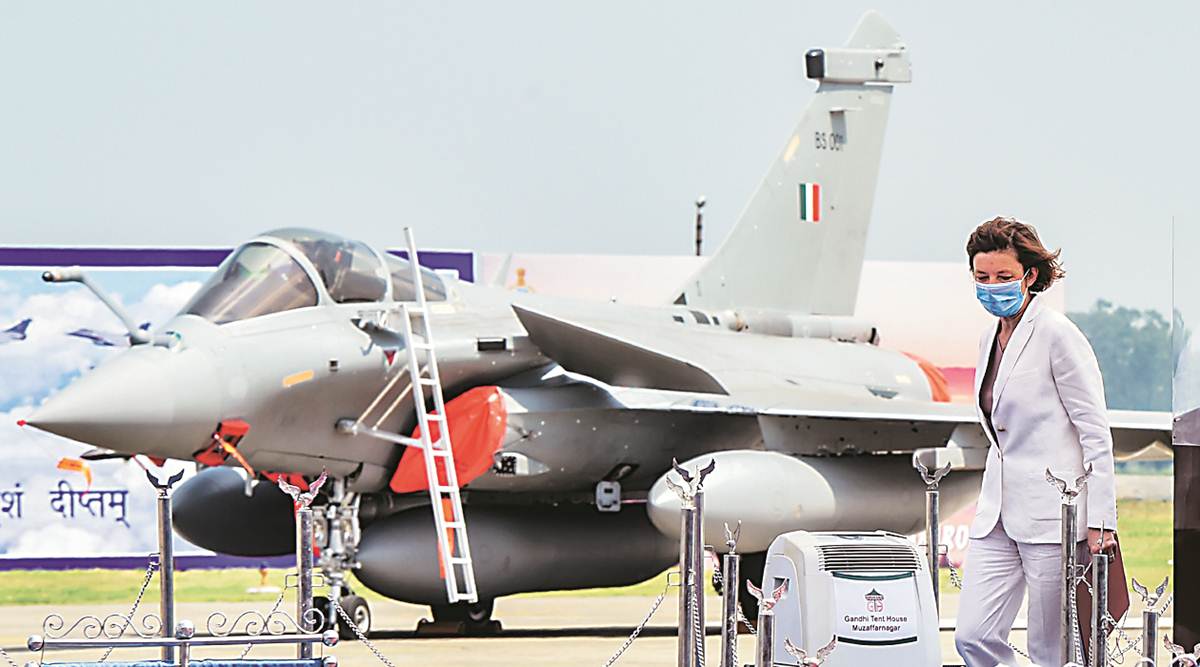
SOURCE: ENS
The Comptroller and Auditor General (CAG) of India has criticised the Defence Ministry’s offset policy, introduced in 2005, stating that it has brought “negligible Foreign Direct Investment”, and that the Defence Research Development Organisation (DRDO) “has not acquired any high technology so far”.
In its report for 2019, tabled in Parliament on September 23, the CAG noted that it found that “in many cases vendors make offset commitments in order to get the main contract. But later they are not earnest about fulfilling these commitments and raised new issues which delayed offset implementation.”
It has listed cases of a deal to buy 80 helicopters from Russian Rosoboronexport (ROE), 36 Rafale fighter jets from France’s Dassault Aviation, and a contract with US giant Boeing to buy 10 military transport C-17 III aircraft.
The CAG mentioned that out of total offset obligations of Rs 66,427 crore between 2007 and 2018, Rs 19,223 worth of offsets should have been discharged. But only Rs 11,396 crore worth of it had been discharged, of which Rs 5,457 worth of offset claims have been approved, it reported.
“Rest of the claims are either pending or have been rejected” by the Controller General of Defence Accounts (CGDA), it stated.
Offsets are benefits that a buyer gets from a seller — technology/capability that Indian industry gets from a foreign vendor selling equipment to India.
The CAG noted that offset obligations worth about Rs 55,000 crore are “due to be completed by 2024”. But “the rate at which foreign vendors have been fulfilling their offset commitments was about Rs 1300 per year,” so “given the situation”, fulfilling the commitment in the next six years will be a “challenge”, it noted.
On the entire offset policy, which the government is banking on as it tries to invite more international projects and push domestic defence manufacturing, the CAG has said that the “objectives of the offset policy remain largely unachieved, even after more than a decade of its adoption”.
Among contracts the country’s top auditor reviewed was the deal to buy 36 Rafale jets from Dassault Aviation in 2016, for which the CAG has noted that the foreign vendor has “not confirmed the transfer of technology” to DRDO that “wanted to obtain Technical Assistance for indigenous development of engine (Kaveri) for the Light Combat Aircraft”. The CAG noted that in April 2016, DRDO identified six new technologies to be obtained under offsets obligations, but “did not agree on transfer of five technologies, as most of them were not within the vendor’s core competencies”.
Another deal mentioned is offset obligations of Mi-17 V5 Medium Lift Helicopters, signed with ROE in December 2008. The CAG said a general offset agreement was “signed for discharge of offset obligation of USD 405.7 million” through four projects by December 2012. The CAG found that of four projects, only one had been completed – for that, too, the CGDA rejected 87 per cent of the claimed value.
The four projects included setting up of overhaul facilities for the helicopter engine and aggregates worth $128 million; purchase of Indian airborne equipment for aircraft Su-30 MK worth 32.07 million; establishing repair and maintenance facilities for navigation system worth $150 million; and setting up two training centres for pilots and ground specialists for $95 million.
Only the project to buy Indian airborne equipment for SU-30 MK was completed, the CAG noted. But of $32.07 million value, CGDA accepted claim for only $2.07 million. So, out of $450.07 million, only $2.07 million worth of offset obligations have been completed and accepted by the government.
The rest have either been rejected or the foreign vendor has sought extensions to complete the project, CAG noted.
The Defence Ministry, the CAG said, “failed to recover penalties against the four projects as there was no provision of Bank Guarantee either in the main contract or in the offset contract”.
In the deal with Boeing, “an offset contract with total obligation of USD 1,115 million was signed” on June 14, 2011. The CAG noted that the offset obligations were to be discharged within seven years of signing the contract through seven projects with 14 Indian Offset Partners (IOP).
“DRDO was one of the major IOP and was to discharge 47 per cent of the offsets”, with “two major projects”. The projects were High Altitude Engine Test Facility (HAETF) for $315 million and Transonic Wind Tunnel (TWT) worth $195 million.
Both projects have been extended till June 2023 — the CAG said the delay has been “mainly on account of export restrictions by the US Government”.
Although DRDO had done due diligence, the CAG said “these facilities were viable option at that point of time, however the vendor had not indicated how long it would take for export license approval from their (USA) government”.
The licence for TWT was granted in February 2017, by when “competence of Indian industries had increased significantly” and DRDO finally decided to not go ahead with it, the auditor reported. The HAETF project is “still under discussion”, as the US government is “yet to grant export license”, the CAG report states.
The CAG specified that “the fact that these technologies required export licence from US Government was known to the vendor at the time of submission of the offset proposal”, but “neither the firm seems to have disclosed the time frame for obtaining these licenses nor the MoD (Ministry of Defence) insisted on time bound commitments”.
The CAG pointed out that “it is not clear how MoD intends to ensure fulfilment of these or alternative commitments of offsets made by the vendor”.






